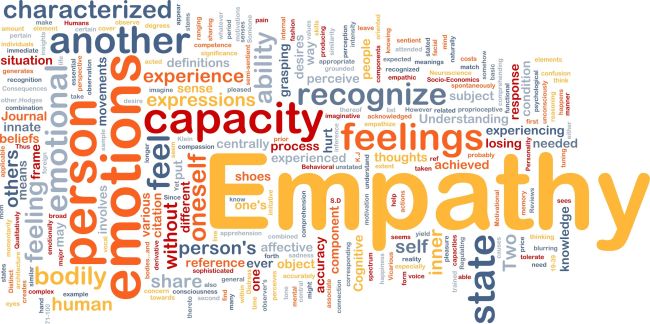This week, I revisited StrengthsFinder 2.0 after having completed the assessment for the first time about three years ago. My top five strengths are Learner, Achiever, Strategic, Empathy, and Connectedness. When I initially took the test, I enjoyed reading about my results and was happy to take a second look at them once again. This time, however, I noticed something that I had missed before. According to my assessment, my top five strengths all fall within “relationship,” “strategic,” and “executing” – apparently “influencing” is just not my thing.
Though I found this somewhat irritating at first (perhaps the Learner in me wanting to understand what I was missing), I tried to take heed and focus on the positives, reflecting on my strengths in an effort to better craft my personal leadership philosophy. One of my strengths is something that I previously had not commonly associated with traditional notions of leadership – empathy. My first impression of empathy, while not negative, is that it’s a “soft” strength and perhaps something that would cause someone to slow down… quite contradictory to the sharp, fast-paced image of a leader that we so often look for! With a little digging, however, I was happy to find others who have considered empathy in leadership. Just this past May, Forbes published an article on the subject, arguing that “Though the concept of empathy might contradict the modern concept of a traditional workplace—competitive, cutthroat, and with employees climbing over each other to reach the top— the reality is that for business leaders to experience success, they need to not just see or hear the activity around them, but also relate to the people they serve.”
 In my StrengthsFinder report, the description of empathy advises, “It’s very likely that you may be capable of stepping into a person’s feelings, thoughts, or experiences. Chances are good that you occasionally interpret the moods of people. Perhaps you sense what they are thinking or feeling at the moment that they experience an event, overhear a comment, reach a goal, or make a mistake.” Reading that passage was like a light bulb going off for me. There have been so many times in my life, both personal and professional, that I witness an off-the-cuff comment or gesture derail an entire interaction between two people. One example of this was in a previous job where the leader of the organization would speak to her subordinates, seemingly without thinking, and I would watch the look on the face of the employee, fading into total defeat. Those moments really bothered me and have been much of the catalyst for my desire to understand how to be a good leader.
In my StrengthsFinder report, the description of empathy advises, “It’s very likely that you may be capable of stepping into a person’s feelings, thoughts, or experiences. Chances are good that you occasionally interpret the moods of people. Perhaps you sense what they are thinking or feeling at the moment that they experience an event, overhear a comment, reach a goal, or make a mistake.” Reading that passage was like a light bulb going off for me. There have been so many times in my life, both personal and professional, that I witness an off-the-cuff comment or gesture derail an entire interaction between two people. One example of this was in a previous job where the leader of the organization would speak to her subordinates, seemingly without thinking, and I would watch the look on the face of the employee, fading into total defeat. Those moments really bothered me and have been much of the catalyst for my desire to understand how to be a good leader.
In thinking about those who might not naturally have empathy as a strength, I found one piece of good advice, both for leadership and everyday life alike. In this video, Roman Krznaric argues that we can all enhance our ability to be more empathetic “by strengthening our curiosity about others (2:56)” and that in doing this, we can open ourselves to even more valuable learning and networking experiences.
This sort of openness, I hope, may ultimately reinforce our capabilities to be effective leaders who work for positive change.